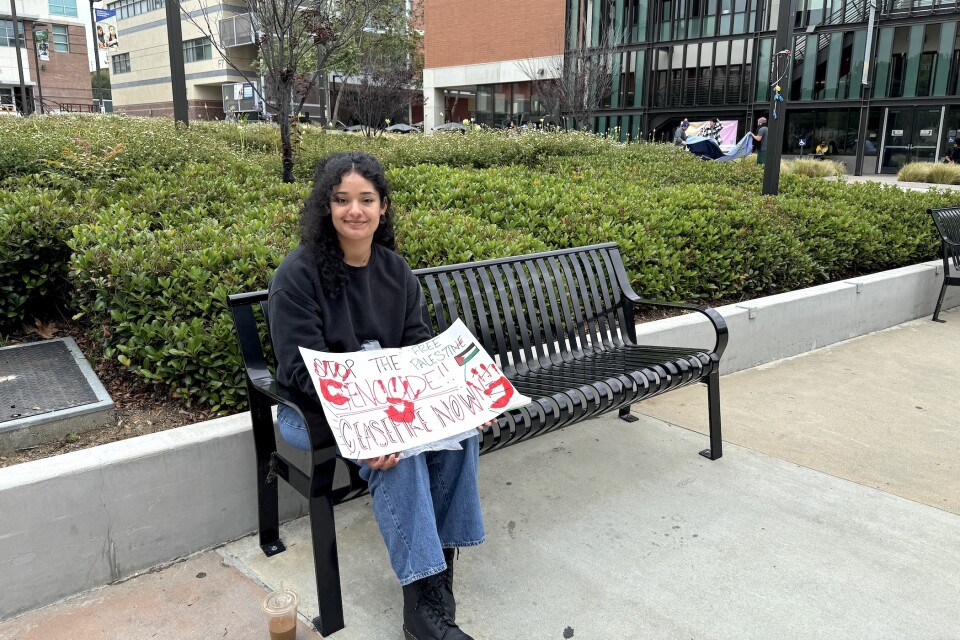As the Palisades Fire roared to life a year ago, Los Angeles Mayor Karen Bass was nowhere to be found in the city.
She was on a diplomatic trip to Ghana, the guest of the Biden Administration, when the wind-whipped flames swept into the Pacific Palisades on Jan. 7, 2025. After her return to Los Angeles the next day, she stared stone faced and silent when a reporter from the British outlet Sky News quizzed her at LAX about why she had left the city amid warnings of historic winds and fire danger.
Later, she said the fire chief, whom she terminated six weeks after the fire, did not properly warn her of the impending extreme and dangerous conditions. Bass later called it a “mistake” to have left the city.
From day one of the Palisades Fire, which burned nearly 7,000 homes and killed 12 people, Bass has been under intense scrutiny for her response to the disaster.
And it will likely be a big issue in her reelection campaign this year.
The mayor is politically vulnerable when it comes to fire response, said Fernando Guerra, who directs the Center for the Study of Los Angeles at Loyola Marymount University.
“The fires are the major issue in this election,” Guerra said.
Among the criticisms: The mayor introduced a plan to waive new building permit fees for Palisades residents, an effort to help fast-track rebuilding, but it is languishing in the City Council. Some residents say the rebuilding process has gone to slow and blame the mayor.
Additionally, The Los Angeles Times reported last month that an after-action report by the L.A. Fire Department, which the mayor oversees, was toned down to avoid being too critical of the agency’s response. The Times reviewed multiple drafts of the report and learned that the revisions amounted to “an effort to downplay the failures of city and LAFD leadership.”
The fumbles have left many in the Palisades frustrated. Some in the Palisades have called on her to resign.
Larry Vein of Pali Strong, a fire survivors group, acknowledges the anger some in the Palisades have expressed toward Bass, but he is careful about criticizing the mayor.
“I have a saying which is I don’t do politics, I do Palisades,” he said. “ But “certainly mistakes were made.”
“As of today, there is a lot of anger and there is a lot of upset at the mayor, thinking that she should have done more,” he continued. “She has been making strides with trying to get the rebuild done, but there have been the standard hurdles that happen in any bureaucracy.”
The mayor has defended her administration’s response to the fire, saying debris cleanup and the issuing of permits to rebuild have happened at “lightning speed” and that thousands of people have used the city’s one-stop centers that provide relief. She has urged banks to extend forbearance of mortgage payments to residents who lost their homes, and banned projects that split lots zoned for single-family homes — an effort to retain community character in the Palisades.
In an interview with LAist, Bass acknowledged the criticism.
“You certainly have Palisadians who say that it's going too slow. But it's going too slow for a variety of reasons,” she said. “It might be financial, it might be insurance. If it's the city process — and it might be — and we find out about it, we jump on it and move whatever obstacle that’s in the way out of the way.
“We have a long ways to go, but I am hoping that progress will even speed up more, and more homes will be under construction,” Bass said.
Fire Department report criticized
Much the criticism has focused on the fire department, which Bass oversees.
The Times has reported the department downplayed some of the problems in the response, including the agency’s failure to fully extinguish the Lachman Fire a week before the Palisades Fire. It is believed that high winds reignited the Lachman Fire and caused the Palisades Fire.
“There was an effort to minimize errors in judgment that were made,” City Councilmember Monica Rodriguez told LAist.
Maryam Zar, founder of the Palisades Recovery Coalition, echoed the sentiment.
“The lack of accountability, the lack of ability to say, ‘Hey Pacific Palisades we really got this wrong’...that leads to this community’s inability to let go,” Zar added.
Bass wouldn’t say if there was a cover-up by the fire department. She said another report ordered by Gov. Gavin Newsom is due out later this month.
“That is an independent report,” she said. “ It had nothing to do with the Fire Department. And you can judge at that point.”
According to the Mayor’s Office, more than 1,400 construction permits have been issued for more than 680 addresses in the Palisades as of this week. At least 417 projects are confirmed to have started construction
The office says Palisades rebuilding plans are being approved in half the time compared to single-family home projects citywide before the wildfires.
In April, Bass introduced a proposal to waive construction permit fees for people who wanted to rebuild in the Palisades. But the proposal needs approval from the City Council, which has delayed any action citing concerns about the effect it would have on the cash-strapped city.
The cost will run into the tens of millions of dollars. The council approved a $13 billion budget in June that included little wiggle room for additional spending.
The council is scheduled to take up the issue again this month.
Some blame Bass for not pushing the council hard enough.
“We think she’s lost that sense of urgency — that this is an important part of L.A. city that has burned down and been completely devastated,” said Zar, from the Palisades Recovery Coalition.
Vein, from the fire survivors group, said knowing whether the city will waive potentially tens of thousands of dollars in permit fees per home is important because many residents are still on the fence about whether to rebuild.
And the delays have been frustrating to many.
“A year later, we’re still waiting on permit fee waivers,” said Jessica Rogers, vice chair of the Palisades Long Term Recovery Group.
Back to square one
The city also still has no overall plan to rebuild city infrastructure. The mayor hired one firm to develop a plan then switched to another, AECOM, which is conducting listening sessions with residents, according to Zar.
“We think there’s been enough of a listening tour and too little output,” said Zar. “Over and over again we feel like we’re back to square one.”
Rodriguez said it's important to move things faster for the residents of the Palisades.
“With every false start, you’re delaying a plan for the families that were affected to be able to recover,” the council member said.
At the same time, Zar said she thinks some of the criticism of the mayor has been overblown. Zar said she isn’t convinced it’s such a big deal that Bass was out of town the day the fire started.
“The mayor being in town would not have meant that she would have shown up with a hose in her hand,” she said.
Some in the Palisades say any mayor would have struggled to respond to such a large-scale wildfire.
“For a disaster of our size, it would be hard for anybody to do a very good job at assisting with recovery,” Rogers said.
Bass faces reelection bid
Bass announced her reelection bid Dec.13, touting on her website that L.A.’s fire cleanup was the fastest in U.S. history.
Former Los Angeles Unified School District superintendent and investment banker Austin Beutner is among those challenging her. He’s also a Palisades resident whose home was badly damaged by smoke.
“She keeps announcing recovery strategies only for them to get bogged down in details or abandoned altogether,” Beutner said.
Guerra, from Loyola Marymount, said many voters perceived that Bass had “underperformed” during and after the fires.
“I think we’re picking that up not only in the public narrative but also in public opinion polls,” he said.
According to a UCLA/Luskin School Quality of Life Index survey conducted in February and March of last year, her total unfavorable rating was 49% compared to 23% during her first year in office.
Still, she commands a strong coalition that includes labor unions and business groups like the Valley Industry Commerce Association, said Guerra. He predicted Bass would “probably win in the June primary.”
Guerra said Bass will be tough to topple, despite her missteps on fire recovery.
One of the outstanding questions is whether billionaire businessman Rick Caruso will enter the race. Caruso, who ran against Bass in 2022, has been a sharp critic of the mayor’s recovery response.
He spent more than $100 million trying to defeat Bass the first time.
Caruso won’t say whether he plans to mount a challenge to Bass.
The filing deadline is Feb. 7.











